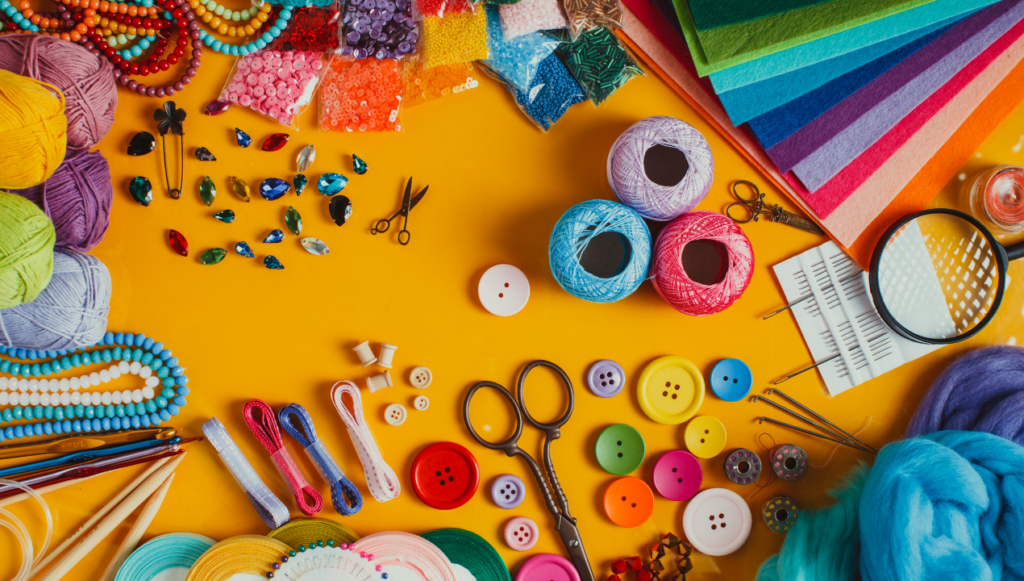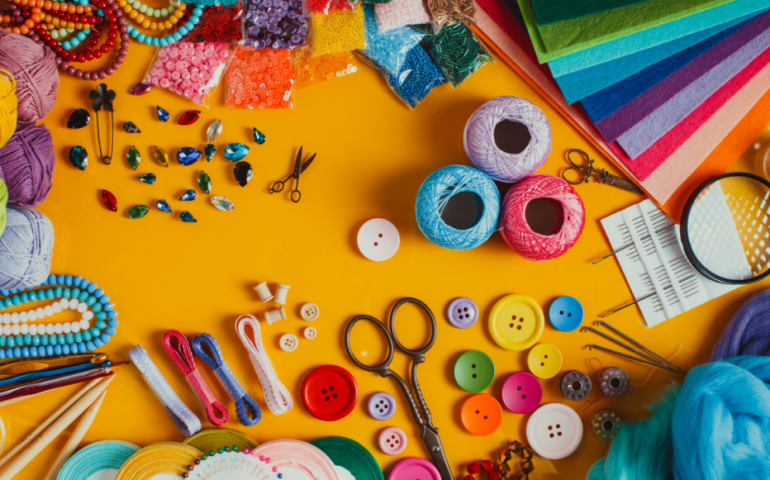Starting a handmade crafts business can be a fulfilling endeavor, allowing you to showcase your creativity and craftsmanship. Here’s a guide to essential tools you’ll need to get started:
1. Crafting Tools
- Cutting Tools: Such as scissors, rotary cutters, or craft knives for precise cutting.
- Measuring Tools: Including rulers, measuring tapes, and T-squares for accurate measurements.
- Crafting Mat: A self-healing cutting mat to protect your work surface and extend the life of your cutting tools.
- Adhesives: Glue guns, glue sticks, craft glue, and double-sided tape for various bonding needs.
- Paintbrushes and Paints: For painting, detailing, and adding color to your crafts.
- Sewing Machine and Supplies: If you’re into fabric crafts, a sewing machine, needles, threads, and fabric scissors are essential.
2. Packaging and Shipping Supplies
- Packaging Materials: Such as boxes, bubble wrap, tissue paper, and envelopes for shipping and presenting your crafts.
- Shipping Labels and Tape: For securely packing and labeling your shipments.
- Scale: A postage scale to accurately weigh your packages for shipping cost calculation.
3. Photography and Marketing Tools
- Camera or Smartphone: To take high-quality photos of your crafts for your online shop and marketing materials.
- Lighting Equipment: Softbox lights or natural light setups for well-lit, professional-looking photos.
- Photo Editing Software: Like Adobe Photoshop or free alternatives like GIMP for editing and enhancing your photos.
4. Workspace and Organization Tools
- Workspace: A dedicated workspace or craft room with a sturdy table or desk.
- Storage Solutions: Such as bins, baskets, or shelving units to store materials, tools, and finished crafts.
- Label Maker: For labeling storage containers, packages, and other items in your workspace.

5. Financial and Administrative Tools
- Accounting Software: To track income, expenses, and manage your business finances.
- Inventory Management: Software or apps to track your craft supplies and finished products.
- Business Cards and Stationery: To promote your business and provide contact information to potential customers.
6. Legal and Safety Tools
- Business License and Permits: Check local regulations and obtain any necessary licenses or permits for selling handmade crafts.
- Safety Gear: Such as gloves, goggles, and respirators if you work with hazardous materials or processes.
7. Miscellaneous Tools
- Crafting Books and Magazines: For inspiration, techniques, and staying updated on trends.
- Customer Feedback Tools: Like surveys or feedback forms to gather insights from customers and improve your products.
- Customer Service Tools: Such as a dedicated email address, phone number, or customer service platform to handle inquiries and issues.
Conclusion
Starting a handmade crafts business requires the right tools and equipment to create, market, and sell your products effectively. By investing in these essential tools and setting up a functional workspace, you can launch your business with confidence and start sharing your handmade creations with the world.












No Comment